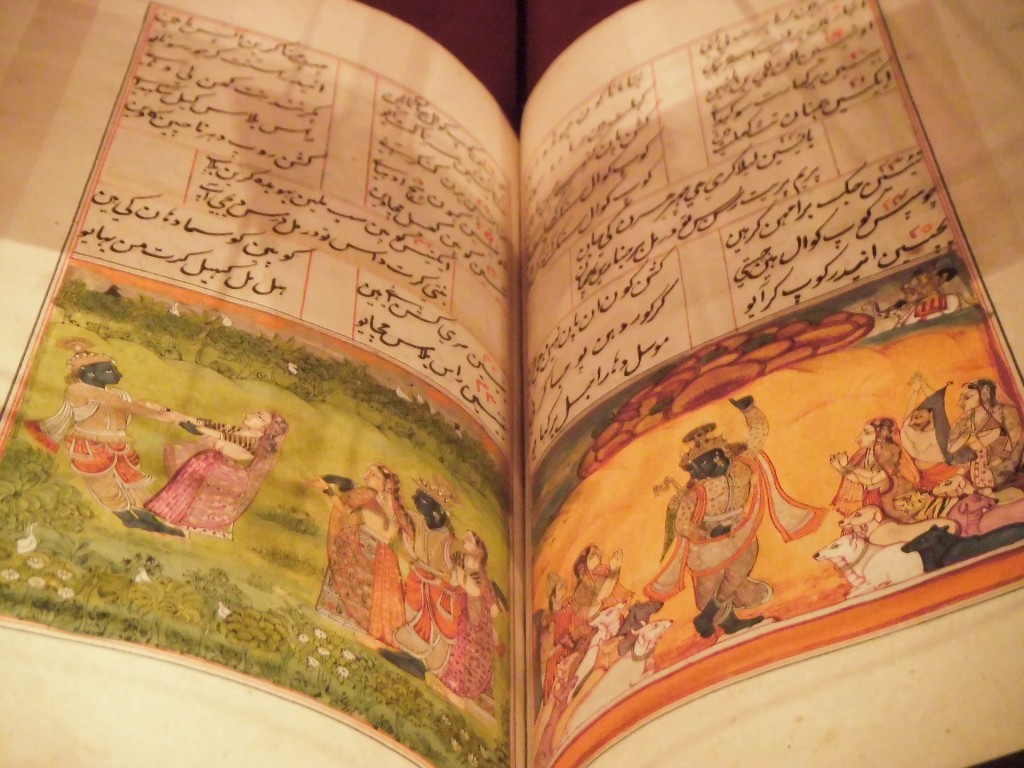
It may be easy to believe that your culture is the one right way when you’ve grown up in just one culture, be it geographic, religious or socio-economic.
(Don’t get me started on the effects of that in the world today.)
And with that kind of thinking, we may miss how much we have to learn from others on the opposite side of the globe.
In two weeks I’m taking a flight to India to attend three special events – and discover some new ideas about leadership in a very different cultural context.
When I visited India twenty years ago, I found it overwhelming: beautiful, crowded, dirty, challenging, breathtaking, historic, heartbreaking, joyous, hard to navigate and absolutely fascinating. I’m sure it will be all that and more.
At that time, I was struck that there was much my Indian colleagues knew about leadership that resonated for me, even though their ideas might have seemed unusual in the States.
My colleagues understood the importance of focusing on the inner side of leadership and working with the mind, while also attending to the body.
They thought it perfectly normal and desirable to bring their spiritual values into their work, yet they were never dogmatic, preachy or proselytizing. Meditation and spirituality were just a natural part of life for many of them.
No big deal.
During the evening session of a business conference, I sat with them on big pillows in the courtyard of an Indian palace hotel, watching billowing red tapestries floating above our heads. We sang wholeheartedly back and forth while gazing up at the stars.
I would never do that in the States (I’m solo-singing-in-public-phobic.)
I was struck by how much business professionals in the States could learn from our colleagues in India.
And now I’m going back. My three week trip will be hardly any time at all. I’ll have to sneak in tourism – because I have three big opportunities to learn in three very different settings.
Delhi: Learning about values-centered business education.

Outside of Delhi, my colleague Anil Sachdev runs the School for Inspired Leadership (SOIL), a value-driven business school. Prior to founding SOIL, Anil used to come to Seattle and teach in the management program I directed for Antioch University Seattle. He captivated students with stories of his experience as a senior executive and how easily he incorporated ideas from the Indian wisdom traditions into his work.
I thought our program at Antioch was innovative at the time, as we focused on developing the inner side of leadership, cultivating teamwork, and incorporating systems thinking.
In creating SOIL, Anil has gone way beyond what we were able to do here.
With executive colleagues, Anil designed the school around five amazing core values: (Read about them here…)
- Awareness – emphasizing the practice of mindfulness and presence.
- Balance – considering sustainability in everything done on campus and throughout the curriculum
- Compassion – teaching business students to stand in the shoes of disadvantaged others by spending one day a week working in a local NGO.
- Diversity – appreciating the uniqueness of each individual.
- Ethics – practicing being fair to all stakeholders and “no deception” (in a culture still marred by a lot of bribery.)
Truly this is business education for the 21 century, designed to support the transformation of India, and I can’t wait to learn where they are going.
Pune: Learning how deep spiritual values can be brought into business.

In Pune, I’ll be attending a conference called: The wisdom of the Bhagavad Gita: World Leadership Dialogue. Hollywood calls the Bible “the greatest story ever told” but Bollywood would probably give that honor to the Gita. Both stories are important and sacred to many. However I know almost nothing about the Gita (watching a musical production of the Ramayana at ACT theatre in Seattle doesn’t really count!) I’ve got a lot to learn from the potent stories at the heart of another faith – especially as they are applied to work.
Also in Pune is a great example of a leader living a life of spirituality-in-action. Sister Lucy Kurien, of the Maher organization, is living her practice of committed, faith-filled leadership while creating safe spaces and homes for poor, abused, vulnerable women and their families.
Unfortunately, Indian attitudes towards women still strike me as a weak link in their enlightened faith. Corporate India has a long way to go in developing and promoting women into leadership positions. And it’s heart-breakingly chilling to hear what can happen to women when they’re poor or cast-out. Sister Lucy and Maher are trying to change that by helping destitute women, children and men from all over India have a crack at a higher quality of life, irrespective of their gender, caste, creed or religion. I hope I can visit Maher.
A friend who knows Sister Lucy describes her as deeply spiritual, crack-your-heart-open compassionate, and yet tough as nails when it comes to getting things done for the poor. Sounds like a good model for the kind of leadership the world needs more of.
Mumbai: Learning about the applications of business storytelling within a major international corporation.

Many of us think business storytelling can be a potent tool for corporate transformation. The Mahindra Group has made story a part of their cultural change initiatives. I’ll have the privilege of teaching two workshops on business storytelling to 6o executives, guiding them to improve their storytelling skills. This won’t be an idle exercise for them – it’s part of their work. And my, oh my, I’ll be learning from them!
And beyond that…
In addition to the above learning goals for my travels in India, I’m guessing something else will happen to me as I again experience India’s overwhelming contrasts, great opportunities, new wealth and persistent poverty and so much more.
I expect visiting India is going to shake me up, change my thinking, and challenge me to see the world in new ways.
That’s the benefit of stepping outside of one’s culture. (I recommend it to some senators…)









